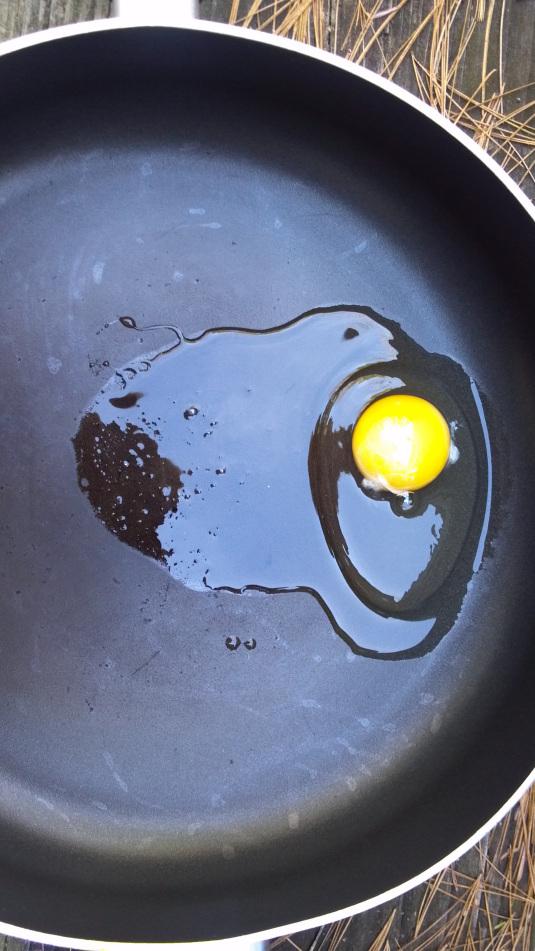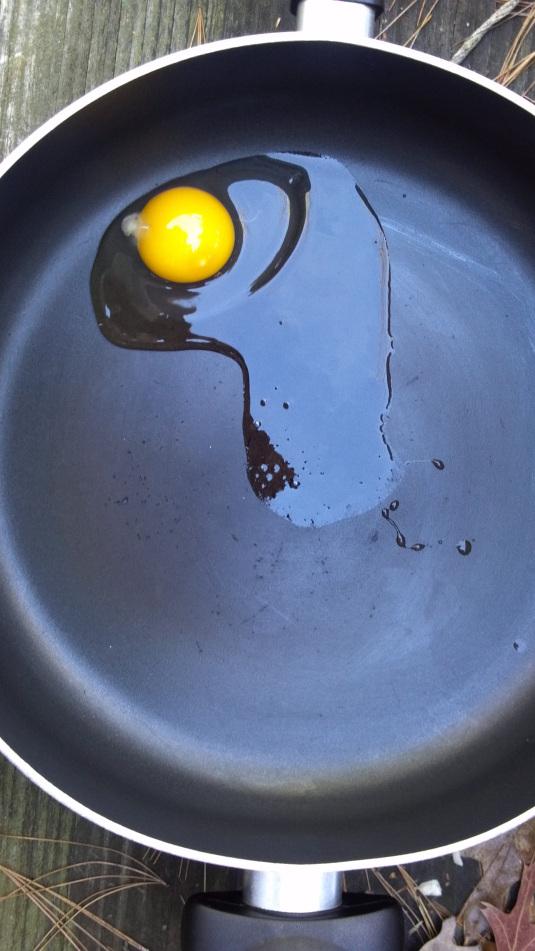The scientist in me (microbiologist) is cringing slightly at this post. There’s no double blind study, no accurate measurements, no blah, blah, blah. But then the real person who also lives inside me is saying – sometimes you just have to accept things for what they are.
One of the comments on yesterday’s post suggested that I show the difference between a store-bought egg and a free-range egg cracked and in a pan. The white of the free range egg is thicker and more firm, she wrote. Those of use who have chickens already know this, but I know that those who do not have chickens may not really *get* this point.
I thought it was a good idea, so that is exactly what I did this morning. I took one of the remaining 11 eggs and one of our eggs that was roughly the same size and I cracked them one at a time into a pan.
Disclaimer – I hadn’t realized out pan was so warped. Guess it’s time to buy a new pan.
I cracked each egg in the middle of the pan and it immediately slid to the side.
This is the store-bought egg:

Store egg
And this is the free-range egg:

Our egg
Although at first glance they look similar, there are a few things to note:
- The slime trail of the store egg is wider, the egg was not compact when it came out of the shell.
- The slime trail of the store egg is thinner than that of our egg.
- The white is more compact around our egg than the store egg which definitely looks “blobby”
- And you’ll have to take my word on this one, the store egg’s white was more watery and thinner than our egg. This was obvious when I dumped the eggs out of the pan.
Minor details you might say.
But let’s take a closer look at this on a nutritional level. *Something* is lacking in the store eggs that is present in the home-grown eggs. Without having access to a laboratory, I can’t definitely tell you what that is but there are studies all over the place showing that home-grown eggs are nutritionally denser. Here’s a post by Alison Anton, a Certified Nutrition Educator which goes into more detail about the differences.
Think about it. If *something* is lacking in store eggs, then that means that every time you eat an egg (or use one for cooking) you are not getting all that you could be getting. Over a long period of time that deficiency could significantly add up, possibly affecting your health.
Junk food is junk food.
Homegrown eggs are fresh, do not contain antibiotics and hormones, have better nutritional content, and are better tasting (yet another experiment I will write about.) But I have a feeling that if you are reading this post, you already know that in the end, there is no comparison.
I think it’s called “preaching to the choir.”
Anyone need 10 eggs?

